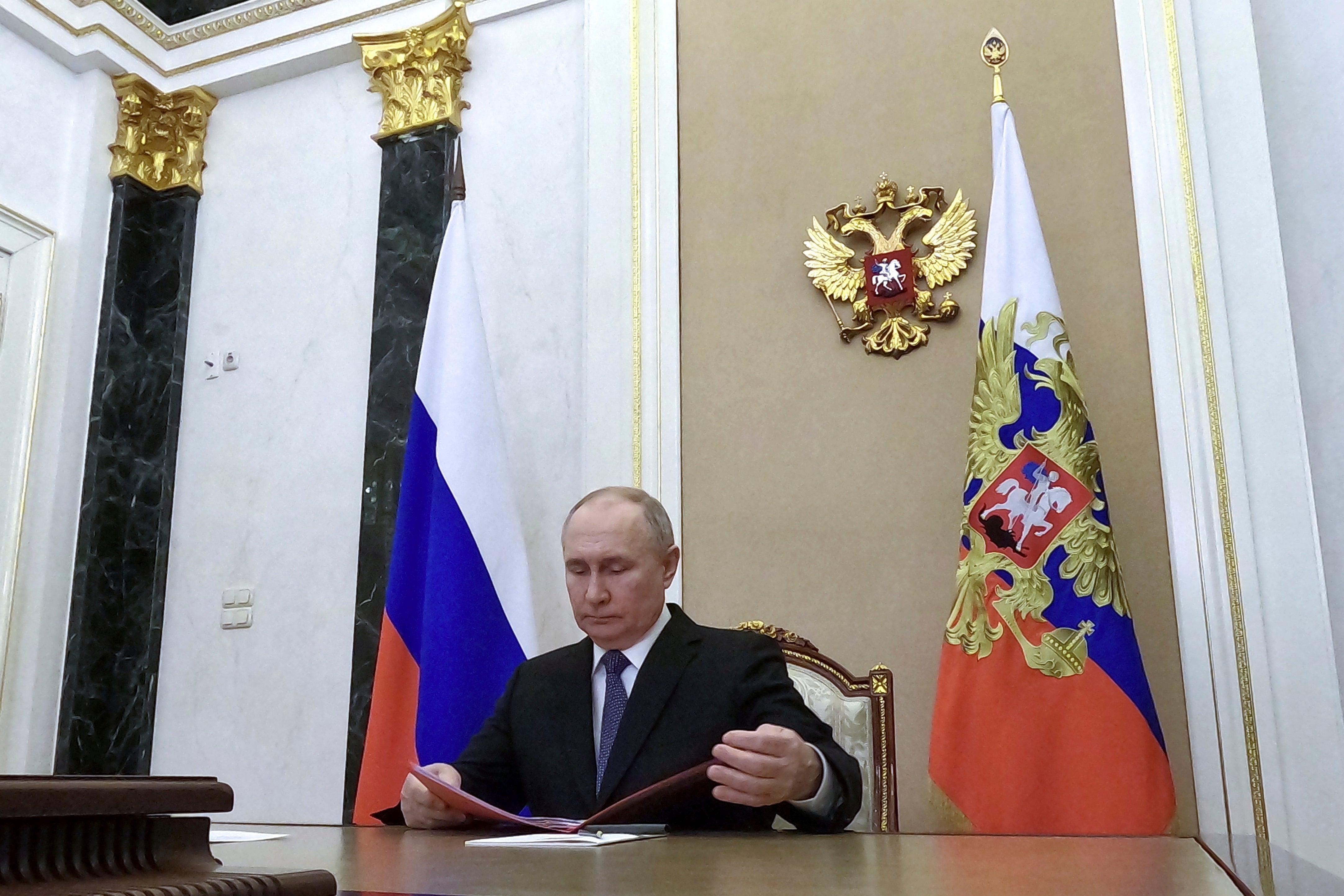The overwhelming majority of the British people stand with the Ukrainian people in their time of need. The Ukrainians’ brave resistance against Vladimir Putin’s aggression meets all the tests of a just war, and it is in our national interest that Putin should not succeed.
Now, however, we are coming to the hard part. Two years have passed since the Russian attempt to take Kyiv, and the balance of the war has started to shift in Putin’s favour. Ukrainian forces have had to retreat from Avdiivka, close by Donetsk, the capital of one of the eastern provinces claimed by Putin.
How should Ukraine and its allies respond to this setback? The Independent carries two exclusive articles that point the way. One, by Lord Sedwill, the former cabinet secretary, argues that Britain and its European allies must increase defence spending. The other, an interview with Maksym Zhorin, the Ukrainian commander who led the retreat from Avdiivka, sets out a warning about what will happen if we do not.
Lord Sedwill points out that the United States still bears a disproportionate share of the cost of defending freedom and self-determination in Europe. The US spends 3.5 per cent of its national income on defence. The United Kingdom spends 2.25 per cent. The European average is under 2 per cent.
Donald Trump may be rude and reckless but he is not wrong about Europe’s reluctance to pay its fair share. Much as we deplore the dithering of the US Congress over support for Ukraine, it ought also to act as a spur to Europeans to step up with weapons and cash.
As Lord Sedwill says, “That is a huge challenge, but a fraction of the cost we will face if Putin prevails.”
Mr Zhorin warns that if Putin senses weakness or, worse, should defeat Ukraine, his Russia “will undoubtedly open its mouth and try to swallow the rest of Europe”. He has seen at first hand the effects of delayed funding and resources on the front line – constraints that have forced Volodymyr Zelensky, the Ukrainian president, to reduce the age of conscription from 27 to 25. Mr Zhorin urges Ukraine’s allies to “use this time wisely … while Russia is attacking Ukraine, prepare for your own war with Russia”.
Lord Sedwill echoes these words, arguing that Britain and its Nato allies should in the short term pour resources into Ukraine, and in the medium term raise spending not just on defence but on national security in the broader sense. He argues that budgets for defence, aid and intelligence should rise to a combined total of 4 per cent of national income.
He argues: “With the UK leading by example, European leaders should make these commitments at Nato’s Washington summit in July, and the next Nato secretary general should be mandated to deliver them.”
But he accepts that this will require Western leaders to confront the hard choices they face in this dangerous period – and to “explain to their electorates” why they cannot be ducked.
That means asking some difficult questions about spending priorities. Do we really need aircraft carriers? Is an independent nuclear deterrent the best use of resources against an autocracy waging a conventional land war in Europe? These are questions that cannot be avoided at a time when the pressures on domestic public spending are so severe.
We must continue to stand by the Ukrainian people. But how much more the British people are prepared to spend on that cause is a question that seems uncomfortably open.




Join our commenting forum
Join thought-provoking conversations, follow other Independent readers and see their replies
Comments